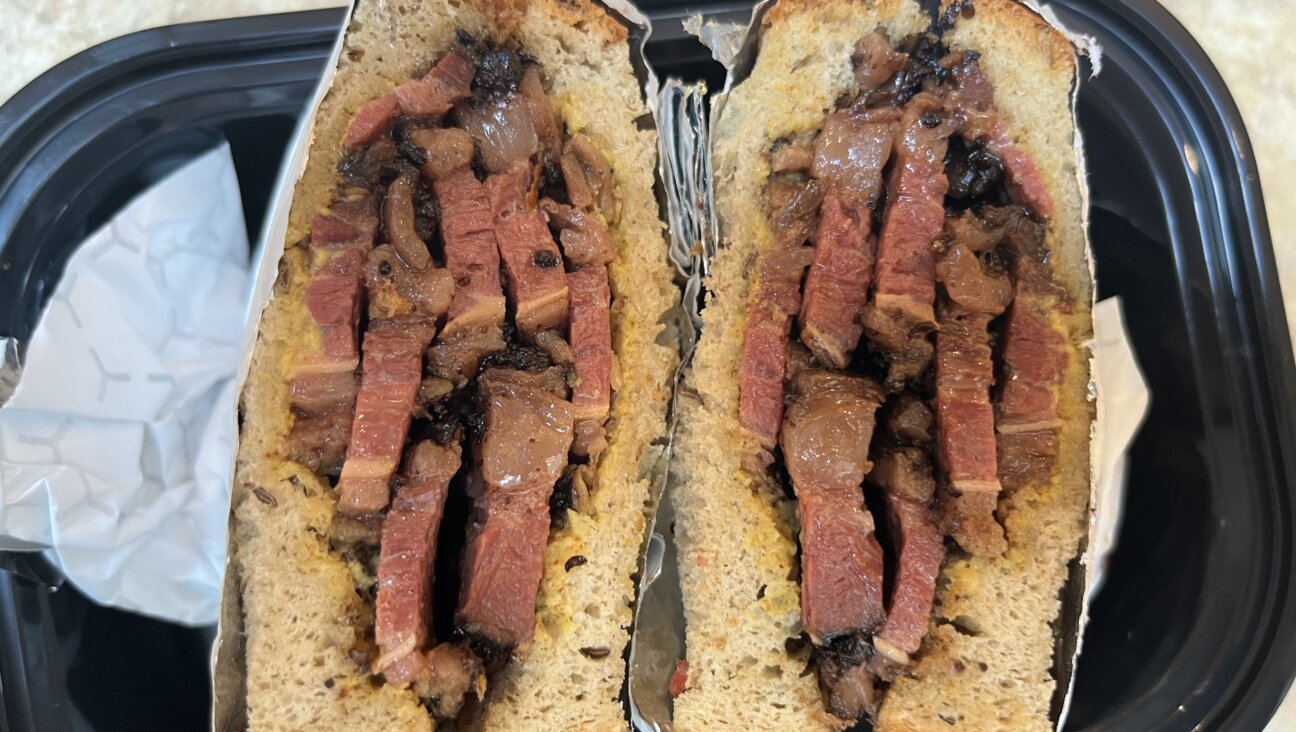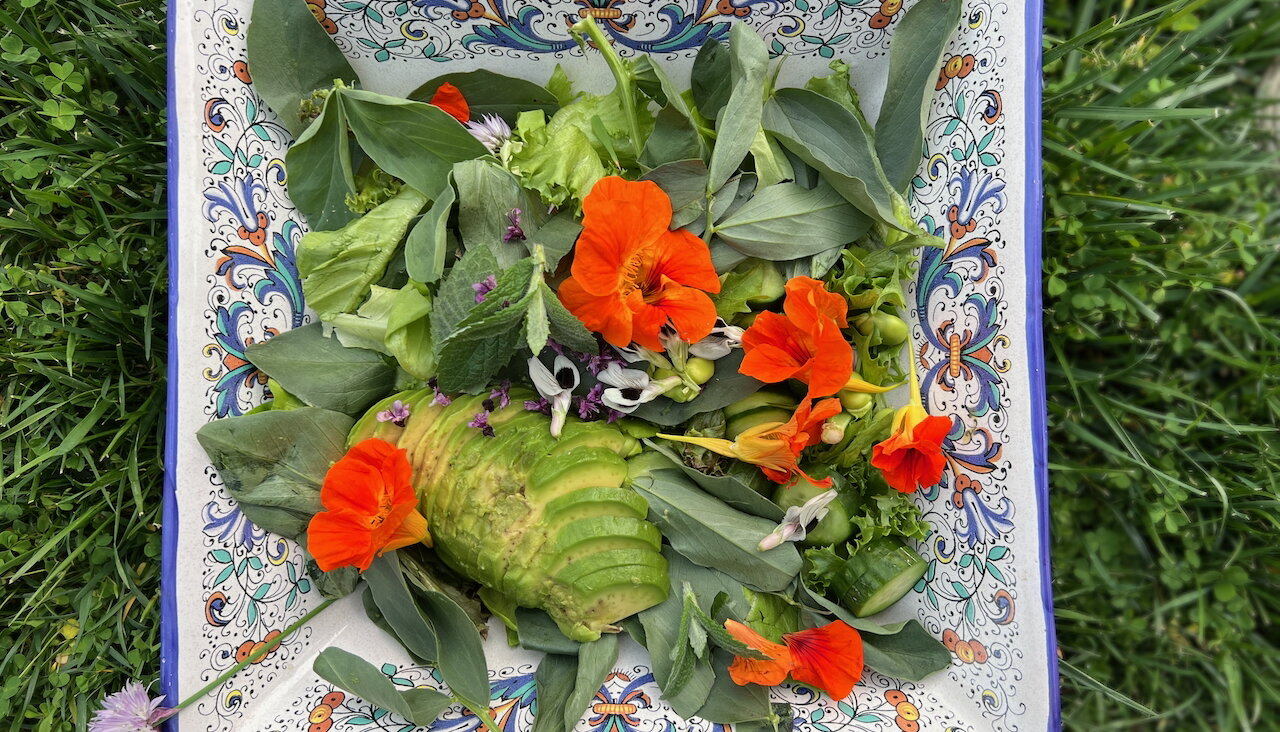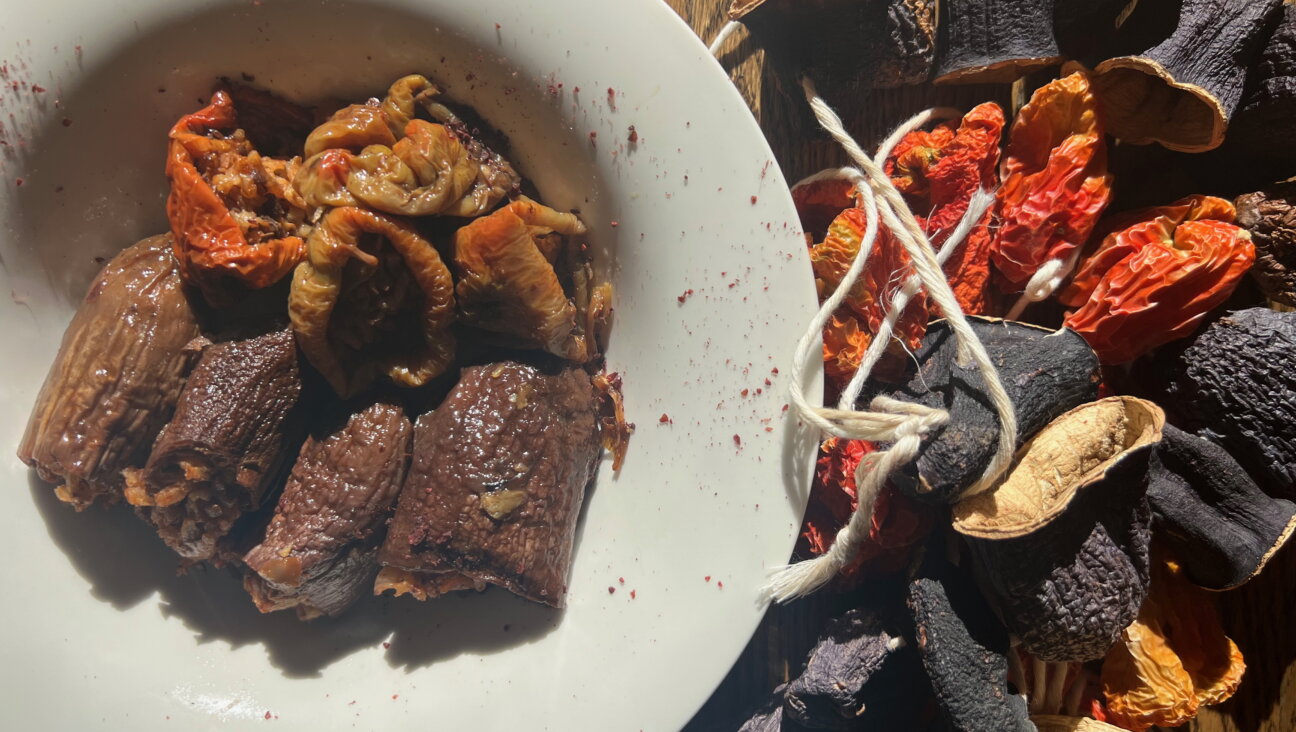Q&A: ‘The Complete Asian Kosher Cookbook’
This article is cross-posted from the Joy of Kosher.
Shifrah Devorah Witt and Zipporah Malka Heller are the mother-daughter team that co-authored “The Complete Asian Kosher Cookbook.” As they grew in religious observance and began following the laws of kashrut, they were not willing to give up the Chinese food and Asian dishes they love. The inspiration for their cookbook was born.
Joy of Kosher: How do you explain the Jewish people’s love affair with Asian food?
Shifrah Witt: You know the joke. The Jewish man and the Chinese man are talking and the Chinese man says, “My culture has been around for 2,000 years.” And the Jewish man says, “Well my culture has been around for 3,000 years.” And the Chinese man looks at the Jewish man and asks him, “So what did you guys eat for the first thousand years?” This joke describes my love affair with Asian cooking. My earliest memories of eating are in dark Chinese restaurants with my parents. I don’t know if that explains the Jewish love affair but it certainly explains ours.
When were you introduced to Asian cooking and what made you decide to write a cookbook?
Zipporah Heller: I’ve wanted to write an Asian cookbook for years but never got to it. After my grandson was born, I got this idea of streamlining our cooking and collected my favorite Asian recipes in binders, and this was how the idea was born. Plus there was nothing like this for the kosher cook.
Where did you learn these recipes?
Shifrah Witt: Many of the recipes are from the power of memory. We remembered eating certain dishes, the place, the people at the table, the conversation, the food, and then we went into the kitchen to recreate those recipes. We consulted our index cards, recipes we’d been working on for years, and some recipes like the Sukiyaki, Thai Fish Cakes, Chicken Satay, and Indian Curry were simply a matter of closing our eyes and remembering the first time we tasted those foods and then “patchkeying”[putting together] in the kitchen until we got the flavors to translate from our memories to the table.
What advice do you have for the busy home cook?
Zipporah Heller: Be organized. Be prepared. Read the recipe through before you shop for the week so you have everything on hand. Take advantage of seasonal produce, like broccoli, Asian long beans, fresh litchis, and bok choy. Have everything chopped and measured before you try to start cooking. You want to sit down to a hot meal. Remember, Asian food is usually cooked quickly and everything should be crisp and hot.
Your cookbook is a grand tour through Asia, with stops in China, Japan, Thailand, India and more. What is your favorite country’s cuisine and why?
Zipporah Heller: I love all of them. Creating the cookbook was especially gratifying because Shifrah Devorah was able to recreate Thai dishes such as Pad Thai, Thai fish cakes as well as Thai Iced Tea. I really missed them. So I guess I’d have to say Thai Fish Cakes.
Shifrah Witt: I also love all of the cuisines we feature in the book. Favorite? How about my top favorites? Chinese, Thai, Japanese, and Filipino, if I have to choose. I’ll go with Chinese. I love the diversity of flavors and cooking methods in Chinese cooking. I also have to admit I love, love, love Chinese Noodles that we featured in the book.
What is your favorite recipe and why?
Zipporah Heller: I’d have to say the Thai Fish Cakes and Dipping Sauce and of course the Pad Thai. My mom’s is the Sweet and Sour Chicken.
Shifrah Witt: It’s a toss up between Chicken Satay with Peanut Sauce and the Shanghai Chow Mein. Why? Nostalgia, of course. I created those dishes based on my memory from childhood but then in the process of re-creating them was blessed with new memories that now surrounds them. I love watching my little son trying to use chopsticks to eat his noodles.
For Thai fish cakes, beef with broccoli, Thai coconut chicken soup and others from “The Complete Asian Kosher Cookbook,” visit Joy of Kosher
The Forward is free to read, but it isn’t free to produce

I hope you appreciated this article. Before you go, I’d like to ask you to please support the Forward.
Now more than ever, American Jews need independent news they can trust, with reporting driven by truth, not ideology. We serve you, not any ideological agenda.
At a time when other newsrooms are closing or cutting back, the Forward has removed its paywall and invested additional resources to report on the ground from Israel and around the U.S. on the impact of the war, rising antisemitism and polarized discourse.
This is a great time to support independent Jewish journalism you rely on. Make a gift today!
— Rachel Fishman Feddersen, Publisher and CEO
Support our mission to tell the Jewish story fully and fairly.
Most Popular
- 1

Fast Forward Ye debuts ‘Heil Hitler’ music video that includes a sample of a Hitler speech
- 2

Opinion It looks like Israel totally underestimated Trump
- 3

Culture Cardinals are Catholic, not Jewish — so why do they all wear yarmulkes?
- 4

Fast Forward Student suspended for ‘F— the Jews’ video defends himself on antisemitic podcast
In Case You Missed It
-

Culture Should Diaspora Jews be buried in Israel? A rabbi responds
-

Fast Forward In first Sunday address, Pope Leo XIV calls for ceasefire in Gaza, release of hostages
-

Fast Forward Huckabee denies rift between Netanyahu and Trump as US actions in Middle East appear to leave out Israel
-

Fast Forward Federal security grants to synagogues are resuming after two-month Trump freeze
-
Shop the Forward Store
100% of profits support our journalism
Republish This Story
Please read before republishing
We’re happy to make this story available to republish for free, unless it originated with JTA, Haaretz or another publication (as indicated on the article) and as long as you follow our guidelines.
You must comply with the following:
- Credit the Forward
- Retain our pixel
- Preserve our canonical link in Google search
- Add a noindex tag in Google search
See our full guidelines for more information, and this guide for detail about canonical URLs.
To republish, copy the HTML by clicking on the yellow button to the right; it includes our tracking pixel, all paragraph styles and hyperlinks, the author byline and credit to the Forward. It does not include images; to avoid copyright violations, you must add them manually, following our guidelines. Please email us at [email protected], subject line “republish,” with any questions or to let us know what stories you’re picking up.















